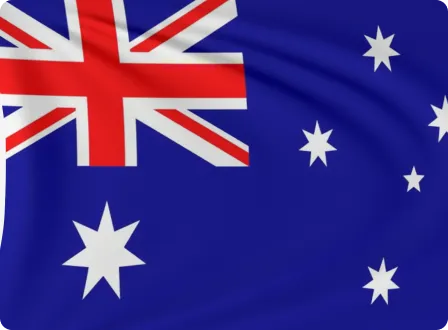
MSB license in the USA
Last Update: 09.06.2025
A Money Services Business (MSB) license in the United States allows companies to legally provide financial services such as money transfers, currency exchange, and payment processing. Obtaining this license is critical for compliance with federal and state requirements, which builds trust with customers and partners. Gofaizen & Sherle specializes in helping international clients obtain various types of licenses. Our team of experts will thoroughly explain all mandatory requirements and help you complete the necessary steps to get an MSB in the United States.
Money Services Businesses (MSBs) provide a wide range of financial services, including currency exchange, money transfers, issuance and settlement of payment instruments such as traveler’s checks and money orders, and the exchange of virtual currencies. In the U.S., MSBs are regulated at the federal level by the Financial Crimes Enforcement Bureau (FinCEN), a division of the U.S. Department of the Treasury, as well as at the level of individual states, each of which may impose its own licensing and regulatory requirements.
Obtaining an MSB license in the U.S. is mandatory for the lawful provision of financial services unless a person is the sole agent of a registered MSB. In addition, companies are required to comply with the Bank Secrecy Act (BSA), including developing and implementing anti-money laundering (AML) programs and designating a compliance officer. In the event of changes, such as a change in ownership or a significant change in ownership structure, a resubmission of the registration form is required.
It is important to note that in addition to federal requirements, most states impose their conditions for obtaining an MSB license. Also, the amount of minimum authorized capital and security deposit required to prove a company’s solvency varies from state to state, and in Montana, it is impossible to obtain an MSB license at all.

Advantages of MSB License in the USA
Legal compliance
An MSB license ensures compliance with federal and state laws, reducing the risk of legal complications and fines.
Building trust
Having a license enhances business reliability by building trust with customers, partners, and financial institutions.
Access to banking services
Many banks choose to partner with licensed MSBs, making it easier to establish the necessary banking relationships for day-to-day operations.
Global expansion
An MSB license provides access to international markets, facilitating the company’s global expansion.
Types of companies that require a MSB license
-
FinCEN requires businesses engaged in these types of activities to obtain a license to operate legally in the United States:
-
1.
Currency Exchange.
Companies that exchange one currency for another are required to have an MSB license. If an organization exchanges more than $1,000 worth of currency for a single customer in a single day, it is subject to licensing requirements.
-
2.
Check Cashing.
Businesses that provide check cashing services over $1,000 for one customer per day must also be licensed by the MSB. This includes exchanging checks or other monetary instruments for cash.
-
3.
Issuers and sellers of money orders and traveler’s checks.
Companies that issue or sell money orders, traveler’s checks, or prepaid cards over $1,000 to one person per day are required to be licensed by the MSB.
-
4.
Money Transfers.
Businesses that transfer funds or currency from one person to another or different locations are considered money transmitters and must be licensed by the MSB. This includes both domestic and international transfers.
-
5.
Prepaid Access Providers.
Prepaid access providers and merchants, such as prepaid cards or e-wallets, must obtain an MSB license if they offer customers access to funds through electronic devices or other methods.
Find more information about the MSB License in the USA
Requirements for USA MSB License
Obtaining a money services business license in the U.S. requires compliance with several federal and state requirements that are critical to the legal and efficient operation of MSBs in this jurisdiction.
Federal requirements for MSBs
Several federal requirements for MSBs to legally operate include the following:
- Registration with FinCEN.
MSBs are required to register with the U.S. Bureau of Financial Crimes Enforcement. Registration is accomplished by submitting FinCEN Form 107 electronically through the BSA E-Filing system. Initial registration must be completed within 180 days of commencement of operations, with renewal every two years thereafter.
- Bank Secrecy Act (BSA) Compliance.
MSBs must comply with the requirements of the Bank Secrecy Act, including the following:
Anti-Money Laundering (AML) program
MSBs must develop and implement an effective AML program, which involves the following:
- written policies and procedures;
- regular risk assessments;
- employee compliance training;
- independent audits to evaluate the effectiveness of the program;
- designating of a compliance officer is mandatory to ensure compliance with the AML program.
Currency Transaction Reporting (CTR)
A commitment to file cash transaction reports for cash transactions over $10,000 within one business day for any person.
Suspicious Activity Reporting (SAR)
The obligation to report suspicious transactions of $2,000 or more when there is reason to suspect illegal activity.
- Recordkeeping and Record Retention.
MSBs must maintain detailed records of certain transactions, such as fund transfers and purchases of monetary instruments of $3,000 or more, and safeguard them by BSA requirements.
State licensing requirements
In addition to federal requirements, money services businesses must comply with the licensing requirements of each state in which they plan to operate. These requirements can vary significantly between states and include the following key aspects:
1. Money transmitter license.
Many states require MSBs to obtain a money transmitter license or similar state-specific license. The application process typically includes providing detailed information about the business, its owners, and the services offered. For example, the state of Georgia requires an MT (Money Transmitter) license.
2. Financial Requirements.
States often set minimum net worth requirements and require a surety bond. The amounts of these requirements vary. For example, in Colorado, the minimum net worth is $50,000, and the surety bond amount is $250,000. In Delaware, the minimum net worth is $100,000, and the surety bond is $25,000.
3. Background Checks.
Many states require background checks on the owners, officers, and key personnel of the company. This may include criminal record checks, fingerprinting, and credit history assessments.
4. Financial statements.
Providing audited financial statements is a common requirement. This helps regulators assess the financial stability and solvency of the company.
5. Business Plan and Organizational Chart.
States may require the submission of a detailed business plan, as well as management and organizational charts, to demonstrate the company’s operational competence.
6. Registration with the National Multistate Licensing System (NMLS).
Many states use NMLS to process MSB license applications. This streamlines the multi-jurisdictional application process.
Because MSB licensing requirements vary significantly between states, it is recommended that you carefully review the regulations of each state in which you plan to operate. Engaging the legal counsel of Gofaizen & Sherle can help ensure compliance with all applicable requirements and facilitate the licensing process.
The process of applying for a MSB license in the United States
The process of applying for a Money Service Business (MSB) license in the United States involves several key steps:
Determining the activities of your business.
Stage 1
Determine whether your business qualifies as an MSB according to FinCEN guidelines. MSBs include businesses that engage in money transfers, currency exchange, check cashing, and other similar services.
Register with FinCEN.
Stage 2
Register with the Financial Crimes Enforcement Bureau within 180 days of commencing business.
Required documents: A completed FinCEN Form 107 (Registration of Money Services Business).
Obtain state licenses.
Stage 3
Determine the licensing requirements in each state where you plan to operate and submit the appropriate applications to the respective state financial services regulators.
You may need:
- a detailed business plan;
- company financial statements;
- documents verifying the backgrounds of the owners and officers;
- documents showing that you meet minimum net worth and surety bond requirements.
Review times vary by state, as well as the number of licenses you wish to obtain.
Develop an anti-money laundering (AML) program.
Stage 4
Create a written AML program that meets the requirements of the Bank Secrecy Act (BSA).
Compliance with reporting requirements.
Stage 5
Ensure timely filing of large transactions (over $10,000) and suspicious activity reports with FinCEN.
Maintain compliance with federal and state requirements.
Stage 6
Regularly update registrations and licenses, keep up with changes in the law, and keep your compliance programs current.
Following these steps will help your business successfully obtain an MSB license and operate in compliance with U.S. law.
How long does it take to complete the process of obtaining a USA MSB license?
The process of obtaining a money services business license involves several steps, each of which has its timeline:
- Registering with FinCEN. Once the FinCEN Form 107 is submitted through the BSA E-Filing system, it usually takes about two weeks to process the application.
- Obtaining state-level licenses. The time it takes to obtain an MSB license in a particular state depends on each state’s requirements and procedures. This process can take anywhere from a few weeks to several months, depending on the complexity of the requirements and the speed at which applications are processed in the respective state.
Therefore, the total time required to fully complete the process of obtaining an MSB license in the U.S. can vary from several weeks to several months, depending on the specifics of federal and state requirements, as well as the speed of submission and accuracy of all required documents.
MSB license maintenance and renewal
Maintaining and renewing a license for a financial services business requires ongoing compliance with both federal and state regulations. Key aspects include:
- Regularly updating registration with FinCEN.
FinCEN registration must be renewed every two years by December 31 through Form 107. You can update your registration through the BSA E-Filing system.
- Filing Suspicious Activity Reports (SARs).
Businesses must report any transactions that appear suspicious, especially if they exceed $2,000. A transaction is considered suspicious if there is reason to believe that funds have been obtained or are intended for illegal activity, are intended to circumvent Bank Secrecy Act requirements, or have no apparent business or lawful purpose.
A Suspicious Activity Report (SAR) must be filed within 30 days of identifying a suspicious transaction.
- Recordkeeping and Reporting.
MSBs are required to maintain detailed records of their activities, including information on large transactions (over $10,000), and retain this data for at least five years. This includes records of extensions of credit, transfers of currency or other monetary instruments, and information about customers and their transactions.
- Anti-Money Laundering (AML) Program.
Companies must develop and implement an effective AML program that includes written policies and procedures, designation of a compliance officer, staff training, and independent audits. The purpose of this program is to prevent the company from being used for money laundering or terrorist financing.
- Agent List.
MSBs are required to establish and maintain an up-to-date list of their agents, including their personal information. This list must be kept within the United States and made available to FinCEN or the Internal Revenue Service (IRS) upon request.
- Updating Information.
In the event of changes in ownership structure, control, or other material aspects of the company’s business, MSBs must update registration information and notify the appropriate regulatory authorities promptly.
Compliance with these regulations is essential to maintain an MSB’s license and avoid potential fines or suspension. Regular monitoring of regulatory changes and proactive management of compliance processes will help a company to operate successfully in the financial services industry.
Request more information about the MSB License in the USA
Taxation of MSB Companies in the USA
The U.S. tax system is multi-level and includes federal, state, and local taxes.
Federal taxes
At the federal level, the main taxes are:
- Income tax. It is levied on the income of individuals and corporations. Tax rates are progressive and vary by income level. For individuals, rates start at 10% and go up to 37% for the highest incomes.
- Social Security and Medicare taxes. These taxes are designed to fund Social Security and Medicare programs. They are withheld from workers’ paychecks and levied on self-employed individuals.
- Excise taxes. Charged on certain goods and services such as gasoline, alcohol, and tobacco products.
State taxes
Each state has its system of taxation, which can vary significantly.
The major state-level taxes are:
- State income tax. Not all states levy this tax. Rates and tax structures vary: some states have progressive scales, others have flat rates, and still others do not levy an income tax at all.
- Sales tax. Most states levy a sales tax on goods and some services. Rates vary, and some states provide exemptions from the tax on certain items, such as food or medicine.
- Property Tax. Usually levied at the local level and based on property values. Funds from this tax are often used to fund local services such as schools and public safety.
Local Taxes
Local governments, such as counties and municipalities, may levy additional taxes:
- Local sales tax. Supplements the state sales tax and may vary by jurisdiction.
- Property Tax. As mentioned earlier, it is often levied at the local level to fund public services.
- Other taxes and fees. May include taxes on hotel rooms, entertainment, and other specific fees.
Compliance with both federal and local tax obligations requires careful planning and possibly consultation with tax professionals.

Conclusion
Licensing allows MSBs to legally operate and access banking services. Licensing also minimizes the risks of fines and prosecution for noncompliance.
Obtaining a license to provide financial services in the United States requires compliance with both federal and state-specific requirements. Also, the burgeoning remittance and financial services industry comes with stricter regulations and requirements, requiring companies to invest in compliance programs such as AML and KYC.
Gofaizen & Sherle is here to help you through the MSB license process faster and easier by providing professional guidance every step of the way.
FAQ about MSB license in the USA
What is an MSB License in the USA, and who needs it?
This license is required for companies that provide financial services such as money transfer processing, issuing traveler’s checks, and exchanging virtual currency. If you are engaged in these activities, you are required to obtain an MSB license.
What types of businesses need an MSB License in the United States?
In the United States, an MSB license is required for businesses engaged in money transfers, currency exchange, issuing and selling money orders and traveler’s checks, and providing cryptocurrency exchange services.
How long does it take to obtain an MSB license in the USA?
The time it takes to obtain an MSB license in the U.S. depends on several factors, including state-specific requirements and the completeness of the documents submitted. On average, the process takes from two to six months.
Who regulates MSB in the US?
In the US, financial services businesses are regulated at the federal level by the Financial Crimes Enforcement Bureau (FinCEN), a division of the US Department of the Treasury. In addition, each state may establish its own requirements and supervisory authorities to regulate MSBs.
Explore other Crypto Licences
Connect with our experts
Our experts will tell you how to do it as quickly and easily as possible.
By clicking the button, I confirm that I have read the privacy policy and consent to the collection and processing of my personal data in accordance with the GDPR rules.


















